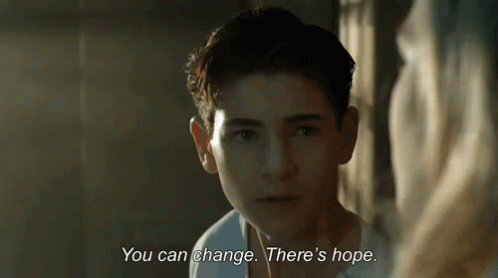What do you think?
Rate this book


256 pages, Paperback
First published March 5, 2015


“Depression is also smaller than you. Always, it is smaller than you, even when it feels vast. It operates within you, you do not operate within it. It may be a dark cloud passing across the sky but - if that is the metaphor - you are the sky. You were there before it. And the cloud can't exist without the sky, but the sky can exist without the cloud."


"Adding anxiety to depression is a bit like adding cocaine to alcohol. It presses fast-forward on the whole experience. If you have depression on its own your mind sinks into a swamp and loses momentum, but with anxiety in the cocktail, the swamp is still a swamp but the swamp now has whirlpools in it. The monsters that are there, in the muddy water, continually move like modified alligators at their highest speed. You are continually on guard. You are on guard to the point of collapse every single moment, while desperately trying to keep afloat, to breathe the air that the people on the bank all around you are breathing as easily as anything."
“And most of all, books. They were, in and of themselves, reasons to stay alive. Every book written is the product of a human mind in a particular state. Add all the books together and you get the end sum of humanity. Every time I read a great book I felt I was reading a kind of map, a treasure map, and the treasure I was being directed to was in actual fact myself."
"One cliché attached to bookish people is that they are lonely, but for me books were my way out of being lonely. If you are the type of person who thinks too much about stuff then there is nothing lonelier in the world than being surrounded by a load of people on a different wavelength.
There is this idea that you either read to escape or you read to find yourself. I don't really see the difference. We find ourselves through the process of escaping."
"Exercise definitely helps me, as does yoga and absorbing myself in something or someone I love, so I keep doing these things."

“Do not watch TV aimlessly. Do not go on social media aimlessly. Always be aware of what you are doing, and why you are doing it. Don't value TV less. Value it more. Then you will watch it less. Unchecked distractions will lead you to distraction”
"Even more staggeringly, depression is a disease so bad that people are killing themselves because of it in a way they do not kill themselves with any other illness. Yet people still don't really think depression really is that bad. If they did, they wouldn't say the things they say."
"I think that basically we are all helping people. All the time. Every time any of us speaks openly about mental health, we are helping normalize an illness that is still handled with protective goggles and safety gloves"
“Love is anxiety's greatest killer. Love is an outward force. It is our road out of our own terrors, because anxiety is an illness that wraps us up in our own nightmares. [...] Forcing yourself to see the world through love's gaze can be healthy. Love is an attitude to life. It can save us."
How to stop time: kiss.
How to travel in time: read.
How to escape time: music.
How to feel time: write.
How to release time: breathe.”
“To other people, it sometimes seems like nothing at all. You are walking around with your head on fire and no one can see the flames.”
"Just when you feel you have no time to relax, know that this is the moment you most need to make time to relax."
“Life is waiting for you. You might be stuck here for a while, but the world isn't going anywhere. Hang on in there if you can. Life is always worth it."



herever you are, at any moment, try and find something beautiful. A face, a line out of a poem, the clouds out of a window, some graffiti, a wind farm. Beauty cleans the mind.